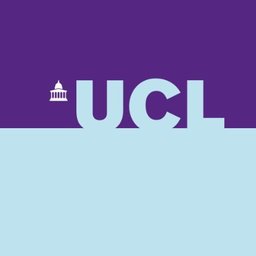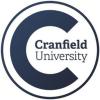Research Fellow In Brain Vascular Biology And Brain Cancer Biology
London, ENG, GB, United Kingdom
Job Description
Ref Number
B02-09094
Professional Expertise
Research and Research Support
Department
School of Life & Medical Sciences (B02)
Location
London
Working Pattern
Full time
Salary
43,374 51,860
Contract Type
Fixed-term
Working Type
On site
Available for Secondment
No
Closing Date
28-Jul-2025
About us
------------
The UCL Cancer Institute is a 40 million investment in central London based at University College London (UCL), one of the world's top universities and a founding member of the Francis Crick Institute. The Institute draws together over 400 scientists working together to develop world-class basic and translational cancer research
Information about the UCL Cancer Institute can be found on our website https://www.ucl.ac.uk/cancer/
The
Group of CNS Angiogenesis and Neurovascular Link / Brain Vasculature and Perivascular Niche
headed byneurosurgeon-neuroscientist
Associate Professor
Dr Thomas Walchli
is one of the laboratories of theUniversity College London (UCL) Cancer Institute
in the Department of Oncology of the University College London (UCL).The overarching vision of the research of
Associate Professor
Dr Thomas Walchli, MD-PhD, FMH neurosurgery
is to understand how the brain vasculature is regulated during brain development, in the adult healthy brain, and in various vascular-dependent brain diseases such as brain tumours and brain vascular malformations.The UCL Cancer Institute is a 40 million investment in central London based at University College London (UCL), one of the world's top universities and a founding member of the Francis Crick Institute. The Institute draws together over 400 scientists working together to develop world-class basic and translational cancer research.About the role
------------------
The
Group of Brain Vasculature and Perivascular Niche
focuses onvascular growth
and the development of blood vessels (angiogenesis
) in thebrain
, including endothelial cells and perivascular cells of the neurovascular unit/perivascular niche, and onbrain
vascular heterogeneity
in development, health and disease: The main aims are: i) to understand the cellular and molecular underpinnings that govern the growth of the developing, adult, and diseased human brain vasculature at single-cell resolution, ii) to uncover the single-cell transcriptomic, genomic and epigenomic landscapes and spatial biology of the developing, adult and diseased human brain vasculature, iii) to elucidate how developmental programs regulate vascular growth/angiogenesis in the human brain tumour vasculature (patho-fetal axis / onco-fetal axis), iv) to unravel the onco-fetal programs of vascular growth/angiogenesis and immunosuppression/immunomodulation, and v) to translate these fundamental insights about the onco-fetal axis in the human brain (tumour) vasculature into clinical settings with the ultimate goal to identify novel therapeutic strategies for human brain tumours (and for other vascular-dependent diseases such as human brain vascular malformations).Applications should include a CV and a Cover Letter:
In the Cover Letter please evidence the essential and desirable criteria in the Person Specification part of the . (By including a Cover Letter, you can leave blank the 'Why you have applied for this role' field in the application form, which is limited in the number of characters it will allow.)The post is funded for 8 months in the first instance, with the possibility of extension.
Appointment at Grade 7 is dependent upon having been awarded a PhD
; if this is not the case, initial appointment will be at Research Assistant Grade 6B, with payment at Grade 7 being backdated to the date of final submission of the PhD thesis.About you
-------------
The successful candidates :
Have
a
PhD
in bioinformatics/single-cell genomics/computer science (AI), neuroscience, vascular biology, developmental biology, cancer biology, immunology, biology/biomedicine, pharmacy, biomedical engineering, or related fields with ample research experienceHave strong skills in working in the fields of bioinformatics/single-cell genomics and/or spatial multi-omics,
neuroscience, vascular biology, developmental biology, cancer biology and immunology and/or experience in biotech, intellectual protection, etc. are an extra-added value Have a proven publication record with at least one first author publication in peer-reviewed international journals.Have experience in: (i) integrating single-cell and spatial multi-omics; (ii) computational programming in R, Python (and other common computer languages); (iii) competence/interest in analysing and integrating complex single-cell and spatial multi-omics- and clinical datasets are essential
. will be an ambitious researcher, motivated to apply his/her skills to diverse (medical) research projects and enjoy working in a collaborative, dynamic, vibrant and fast-paced team environment. Have excellent organizational and supervisory skills, you can work in a team as well as independently. Have a strong ability to multi-task, to meet timelines, to work accurately; you are stress-resistant. Have outstanding written and verbal communication skills in English. Are able to identify priorities, and to find solutions for complex or difficult tasks. Have excellent organizational and record-keeping skills Have experience in presenting complex scientific concepts and content both in writing and verbally Have a strong commitment to enhance our fundamental understanding of human brain vascular biology and to improving outcomes for brain tumor patients Demonstrate excellent collaborative interpersonal skills with an ability to work co-operatively in a highly inter- and multidisciplinary setting. Have the ability to assist other members of the team, supervise MSc and PhD students and collaborate with other research groups.What we offer
-----------------
As well as the exciting opportunities this role presents we also offer some great benefits some of which are below
+ 41 Days holiday (including 27 days annual leave 8 bank holiday and 6 closure days)
+ Defined benefit career average revalued earnings pension scheme (CARE)
+ Cycle to work scheme and season ticket loan
+ On-Site nursery
+ On-site gym Enhanced maternity, paternity and adoption pay
+ Employee assistance programme
+ Staff Support Service Discounted medical insurance
For rewards and benefits at UCL please visit:
https://www.ucl.ac.uk/work-at-ucl/reward-and-benefits
Our commitment to Equality, Diversity and Inclusion
-------------------------------------------------------
As London's Global University, we know diversity fosters creativity and innovation, and we want our community to represent the diversity of the world's talent. We are committed to equality of opportunity, to being fair and inclusive, and to being a place where we all belong. We therefore particularly encourage applications from candidates who are likely to be underrepresented in UCL's workforce. These include people from Black, Asian and ethnic minority backgrounds; disabled people; LGBTQI+ people; and for our Grade 9 and 10 roles, women.
You can read more about our commitment to Equality, Diversity and Inclusion here: https://www.ucl.ac.uk/equality-diversity-inclusion/
Beware of fraud agents! do not pay money to get a job
MNCJobs.co.uk will not be responsible for any payment made to a third-party. All Terms of Use are applicable.
Job Detail
-
Job IdJD3359660
-
IndustryNot mentioned
-
Total Positions1
-
Job Type:Full Time
-
Salary:Not mentioned
-
Employment StatusFull Time
-
Job LocationLondon, ENG, GB, United Kingdom
-
EducationNot mentioned


